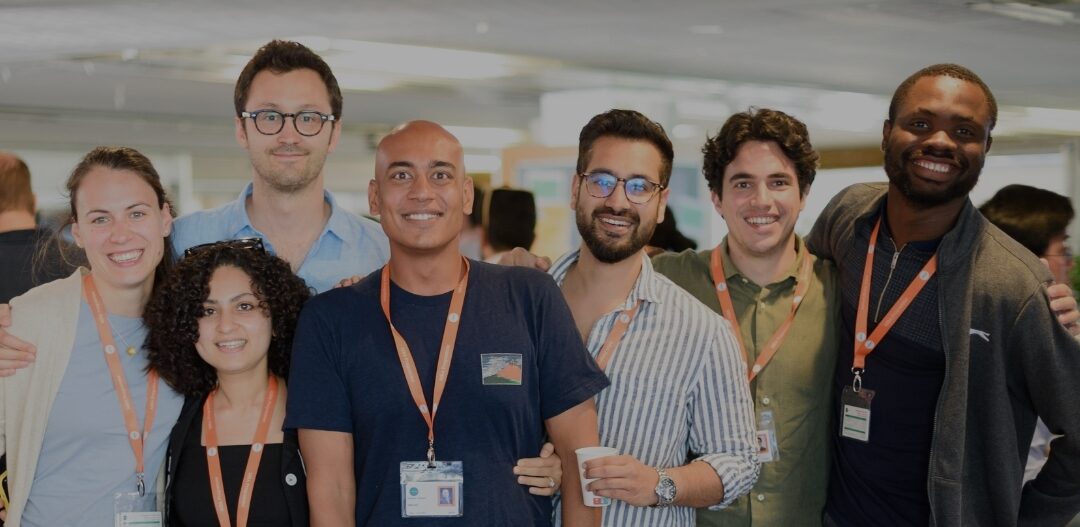Update: This article was originally posted on March 21, 2022. It has been updated with new information and tips below.
Although two-year MBA programs are often considered the standard, there are many reasons why you may be considering a one-year MBA program.
Perhaps you are concerned about leaving your career for an extended period of time, or are worried about the costs associated with two years of tuition and living expenses. Whatever the case may be, we can assure you that there are plenty of top-notch one-year MBA programs available to fit your needs, interests, and objectives.
So, in this post, in addition to going over some of the main considerations and benefits of enrolling in a one-year MBA, we’ll provide you with an overview of the best one-year options and what they can offer you.
Why choose a one-year MBA program?
Deciding the MBA program length that’s right for you is no simple process. Here at Ellin Lolis Consulting, we know that no two applicants are the same. For that reason, the programs we recommend to each applicant are completely different, based on the priorities, goals, and extenuating circumstances that make each applicant unique.
Given our experience with a diverse array of clients, therefore, we’ve compiled some of the main reasons why you may benefit from a one-year program.
You have already gained seniority in your career
One of the most important benefits of an MBA is your ability to use your business school degree as leverage to earn a higher salary and land a more senior position.

However, as you get older and advance your career, promotions are less frequent. This is due to the simple fact that most organizations have few people at the top calling the shots, meaning it may take years for you to nab an open C-Level position.
As such, if you are on the older or more senior side of the applicant pool (usually 30 is a good cut off), a 1-year program might be a better option for you.
This was the advice we gave Mark, an MBB consultant whose quick promotions and frequent international cases meant he was quickly approaching 30 yet still had not completed his MBA. Considering his intention to stay in consulting, a one-year program was a much better option as it would efficiently allow him to build the skills he needed to quickly and successfully step into a manager role while staying ahead tenure-wise of peers who had joined the firm after he did.
Though there is no definitive cut-off date, if you have more than 6 years of work experience, you may want to give a one-year program serious consideration.
You work in a fast-moving industry
In the modern world, business moves quickly. But some businesses move more quickly than others.
Considering the ramifications, an extended “leave of absence” from the market is an important factor, especially for professionals in the technology industry. Need proof? Try to remember which version of the iPhone you were using two years ago!
Perhaps for this reason one of the fastest-growing segments of the one-year MBA segment are targeted towards tech talents. Thus, a one-year program might be the perfect option for you if you’re focused on this fast-growing sector.
This same logic applies to other quickly growing industries like fintech and challenger banking. If you’re one of the growing number of MBA hopefuls who work in tech or plans to transition to tech, you may want to consider a shorter program.
You are concerned about finances
Another key factor to consider is the cost of a 2-year program versus the cost of a 1-year program — and the salary boosts associated with each.
When looking purely from a cost standpoint, 2-year programs are plainly more expensive, especially after factoring in two years of cost of living and lost wages.

Tuition is also higher. For example, tuition at INSEAD, one of the world’s most popular 1-year MBAs, will set you back around $103,000. Meanwhile, Harvard Business School’s tuition will set you back nearly $150,000 after two years.
It’s important to consider this aspect of your studies. Will taking on more debt stifle your post-MBA dream of becoming an entrepreneur? Or is the two-year experience more important to you? Only you can answer that!
You are looking to grow your network in Europe
In general, there are many more one-year programs in Europe than in the US, though the number of 1-year American MBA programs is certainly increasing. Thus, if you can benefit from a certain industry, industry hub, or network in Europe, pursuing a one-year MBA may be a good idea.

Furthermore, since you’ll have less time to establish your network during a 1-year program, think carefully about how important moving to a new geography is to you post-MBA.
Though you definitely can move around after your MBA, programs tend to have stronger connections in the region and country in which they are located. For this reason, if your goals make it so building a network in a specific region (like Silicon Valley, for example) is crucial, you may want to opt for 2-year programs if no suitable 1-year programs are present in your target area.
Time to Explore
Though we suggest you present clear goals for your career when preparing your MBA application, the truth is that many applicants just aren’t 100% sure what they want to do after graduation.
If this sounds like you, you may want to avoid one-year programs. In most one-year programs, the first semester is spent covering core curriculum classes on topics such as corporate finance, strategy, and leadership. Students then have the opportunity to choose elective classes on the topics of their choosing during the second semester.
If your goals are crystal clear, electives might not be as important to you. However, if you’re planning to use the MBA to try out different areas and see which you like best, or if you plan to deep-dive into an area in which your current skills are minimal, it could be highly beneficial to have more time to explore these areas through elective classes.
The best one-year MBAs
Now that you have an idea of whether a one-year MBA is right for you, you may want to explore in detail what options are available to you. Below, we have compiled a list of the best one-year MBA programs and detailed the key aspects of each one!
INSEAD

Source: @inseadalumni on Instagram
Out of all the one-year MBA programs, INSEAD’s offers an exceptional return on investment given its 10-month time period – the average salary of INSEAD grads is $110,000 post-graduation! This is no surprise given that INSEAD ranks second globally according to the Financial Times.
With three out of four students seeking a career transition, the program is amenable to those who are seeking to pivot professional paths. And as one of the most diverse schools in the world, students are guaranteed to broaden their global network at INSEAD.
And with three choices of location (France, Singapore, and Abu Dhabi), students have flexibility in finding the environment and networking opportunities that are best suited for their circumstances and objectives.
Kellogg School of Management
 Source: kellogg.northwestern.edu
Source: kellogg.northwestern.edu
While also offering a two-year program, Kellogg’s one-year MBA accommodates those whose careers and lives are on a faster timeline. However, few sacrifices are made for students attending the shorter program: they have access to over 200 courses, countless networking opportunities, and unique experiential learning opportunities to boost your skills and career prospects.
One of Kellogg’s distinctive offerings within the one-year program is the opportunity to collaborate with second-year students from the two-year program and select electives that match your interests and goals.
Kellogg has also recently launched its MBAi program, created for professionals in the tech industry who want to deep dive into both business and technology leadership. Unique among one-year programs, the MBAi also allows students to complete an internship.
Overall, if you have the career experience to bypass more fundamental business courses, Kellogg’s one-year program may be ideal for you!
SDA Bocconi School of Management

Source: @sda_bocconi on Instagram
Like many European business schools, Bocconi’s highly customizable MBA is one year long and is at the top of Europe’s MBA rankings.
Aimed at problem-solvers who want to bolster their international networks, this program offers a top-notch education and access to some of the world’s most influential companies. The MBA is an intensive experience that doesn’t sacrifice the hands-on opportunities that most two-year programs offer – after spending a few months immersed in theory, students are able to choose an individual internship, entrepreneurial project, or group business lab to practice what they have learned at the beginning of the program.
NYU Stern – Tech MBA
 Source: @nyustern on Instagram
Source: @nyustern on Instagram
Stern’s Tech MBA, unlike its other MBA programs, is designed for those seeking a career in the tech industry as they must move fast to get back to work. Focusing on both business and technological skills, the program builds students’ capacities in marketing, strategy, accounting, and leadership, as well as product management and development, software engineering, emerging technologies, and analytics.
One of the program’s biggest draws is its two-week immersion in Silicon Valley, where students gain hands-on experience working within some of the world’s most influential tech companies. If you are looking to fast-track your career in tech, Stern’s Tech MBA may be ideal for you!
IE Business School
 Source: @iebusiness on Instagram
Source: @iebusiness on Instagram
With a particularly international focus, IE’s program offers a wide range of post-MBA opportunities around the world. The MBA is practice-oriented, equipping students with the skills needed to grow and manage a successful business that makes real impact.
Applicants are expected to have at least three years of prior work experience. This allows faculty to focus on preparing students to boost their existing skillset to promote disruptive change and collaborate with other leaders around the world. If your focus is entrepreneurship and disruption, you’ll definitely want to consider applying to IE!
Oxford Saïd Business School
 Source: @oxfordsbs on Instagram
Source: @oxfordsbs on Instagram
Oxford’s Saïd Business School has a reputation for academic excellence and high returns on investment post-MBA. The program recruits students with solid professional experience and prepares them to be adaptable to some of the business world’s most pressing challenges, such as climate change and social inequality. Saïd’s community is diverse, exposing students to a global network of driven, change-oriented leaders.
The program focuses on developing students’ ability to think critically about key business issues, building fundamental business skills, and empowering them as future global leaders.
Johnson School of Management
 Source: @cornellmba on Instagram
Source: @cornellmba on Instagram
Johnson School of Management, housed by Cornell University, offers a one-year accelerated program offering many options for course flexibility.
The STEM-focused MBA offers top-notch courses, student leadership opportunities, and a tight-knit community to fast-track your career trajectory. Once completing business fundamentals, students then have the opportunity to complete electives that match their particular career paths.
One-year students are able to participate in some of the immersive opportunities available to two-year students, enabling these individuals to make up for the lack of internship opportunities due to the program’s short time frame.
Additionally, international students are eligible for a STEM OPT extension, enabling them to work in their field for a total of up to 36 months in the U.S.
HKUST
 Source: @official_hkust_mba on Instagram
Source: @official_hkust_mba on Instagram
HKUST, located in Hong Kong, is a particularly renowned school offering both 12 and 16-month MBA programs. While the 12-month version does not include an option for a summer internship, it still offers outstanding academic opportunities and post-MBA success. Students gain core business skills and can then customize the curriculum based on their objectives and interests. They are also exposed to a plethora of practical opportunities, such as career workshops, overseas treks, and internships.
An extremely diverse program, around 90% of students are international and represent over 10-20 nationalities. This MBA is particularly useful for those seeking experience and networks in Asia – not only are you exposed to a hotspot for Asian business, but HKUST also provides courses in Mandarin!
Get accepted at your dream one-year MBA
Here at Ellin Lolis Consulting, we know an MBA is not simply a one- or two-year degree, it’s an investment in your future.
That’s because we care about each and every one of our clients and are committed not only to getting you results but to being your partner and advisor at each step of the process. Whether it is figuring out if a one-year program is right for you, crafting an outstanding admissions essay, or negotiating scholarships, you can count on us to guide you toward success.
That’s why we have a success rate of 98.9%. To learn more about how our expert team can help you get accepted into your dream MBA program, apply to work with us today!
Real MBA Essays That Got People In
School-specific sample essays that got our clients accepted






